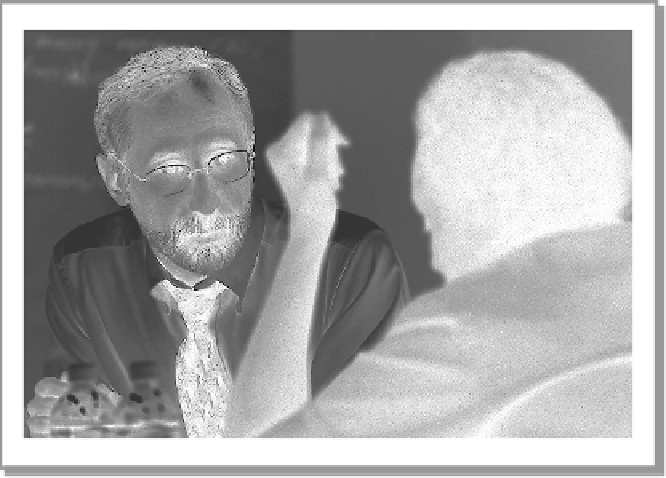Environmental Engineering Reference
In-Depth Information
Figure 3.2
Key informant interviewing by Dr. Fetterman
Life Histories and Expressive Autobiographical Interviews
Key actors often provide ethnographers with rich, detailed autobiographical
descriptions. These life histories are usually quite personal; the individual is
usually not completely representative of the group. However, how a key actor
weaves a personal story tells much about the fabric of the social group.
Personal description provides an integrated picture of the target culture.
Many of these oral histories are verifiable with additional work. However, in
some instances, the life history may not be verifiable or even factually accurate.
In these cases, the life history is still invaluable because the record captures an
individual's perception of the past, providing a unique look at how the key actor
thinks and how personal and cultural values shape his or her perception of the
past. Together with observation and interviewing, taking life histories allows
the ethnographer to assemble a massive amount of perceptual data with which
to generate and answer basic cultural questions about the social group.
My fieldwork on the kibbutz yielded several rich and rewarding life
histories. Many of the older kibbutzniks were concentration camp survivors.
Their stories about pre-concentration camp life, survival in the camps, and

